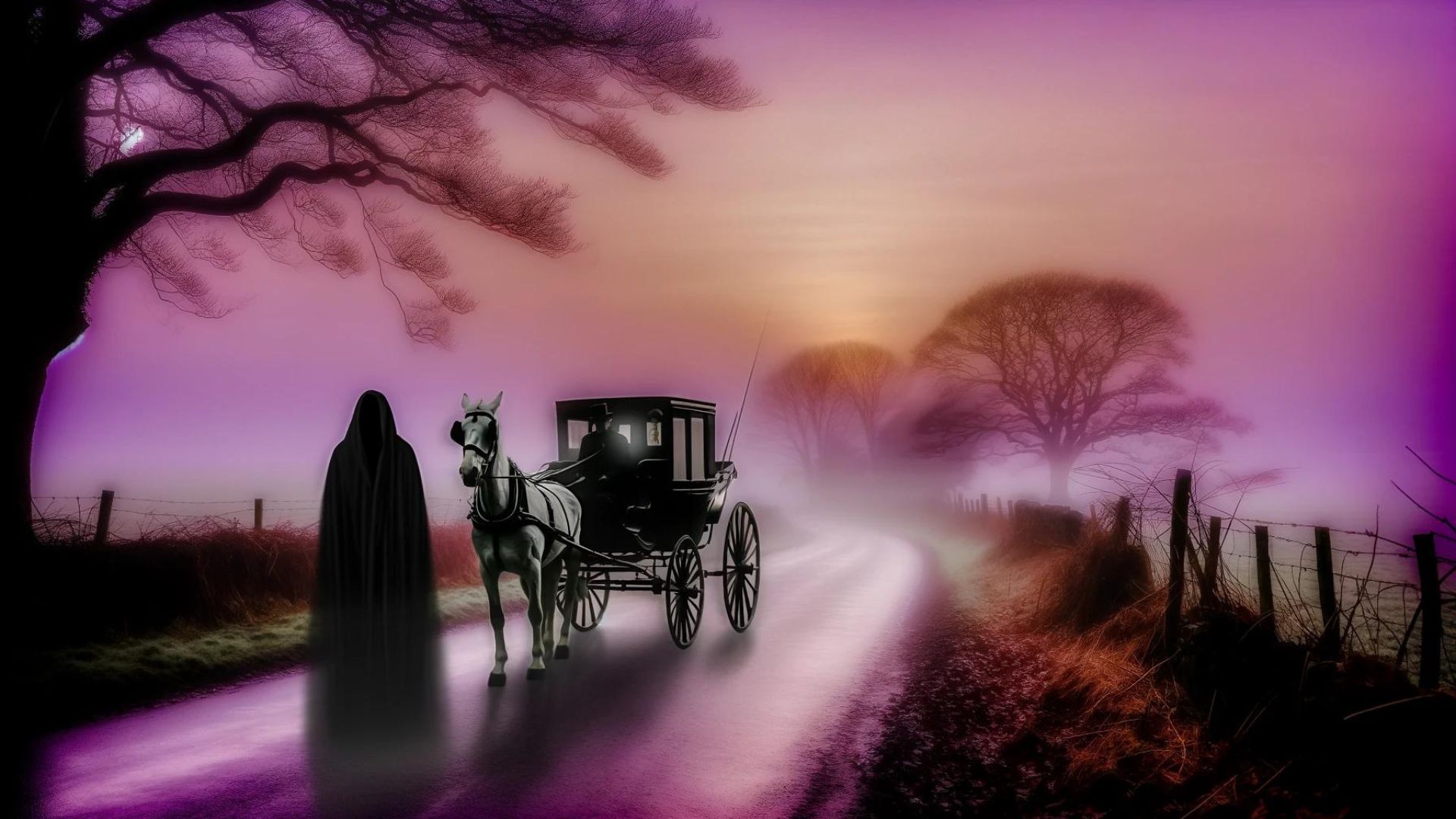Because I Could not Stop for Death by Emily Dickinson
Because I could not stop for Death –
He kindly stopped for me –
The Carriage held but just Ourselves –
And Immortality.
We slowly drove – He knew no haste
And I had put away
My labor and my leisure too,
For His Civility –
We passed the School, where Children strove
At Recess – in the Ring –
We passed the Fields of Gazing Grain –
We passed the Setting Sun –
Or rather – He passed Us –
The Dews drew quivering and Chill –
For only Gossamer, my Gown –
My Tippet – only Tulle –
We paused before a House that seemed
A Swelling of the Ground –
The Roof was scarcely visible –
The Cornice – in the Ground –
Since then – 'tis Centuries – and yet
Feels shorter than the Day
I first surmised the Horses' Heads
Were toward Eternity –
A Journey Beyond: Emily Dickinson’s Contemplation of Death
Emily Dickinson’s “Because I Could Not Stop for Death” isn’t a poem of fear, but rather one of quiet contemplation. Through personifying Death as a gentleman caller, Dickinson invites us on a carriage ride that unveils her unique perspectives on mortality and the possible journey that lies beyond.
Death as a Companion
Dickinson’s depiction of Death is surprisingly gentle. He “kindly stopped for me,” embodying less a menacing force and more a calm, inevitable guide. This portrayal challenges traditional views of Death as terrifying, suggesting a possible acceptance or even a hint of curiosity on the speaker’s part.
Time and the Afterlife
Throughout the poem, time seems to blur. The carriage passes symbols of life stages – children at play, fields of ripe grain, the setting sun – perhaps hinting that our earthly time is fleeting. The poem’s final stanzas evoke an eternal quality: “Since then – ’tis centuries – and yet / Feels shorter than the Day.” Did Dickinson believe in a specific afterlife, or does she suggest a timeless state beyond earthly existence?
Unanswered Questions and Individual Interpretation
Like many of Dickinson’s works, “Because I Could Not Stop for Death” leaves much open to the reader’s interpretation. Some analyze the poem through a religious lens, while others find a more secular meaning in its exploration of life’s transience. The true power of the poem lies in its ability to spark contemplation about our own mortality.
The Legacy
The poem forces us to confront a universal truth: death is an inevitable companion that will come for us all. However, how we choose to perceive that journey is profoundly personal. Dickinson’s poem offers neither easy answers nor despair. Rather, it encourages us to ponder our own relationship with time, mortality, and the potential mysteries that lie beyond the boundaries of our earthly lives.
In Conclusion
“Because I Could Not Stop for Death” exemplifies Emily Dickinson’s masterful use of language to explore profound themes. Its simple yet evocative imagery continues to challenge and inspire readers, inviting them to confront the universal questions of existence and the great beyond.











0 Comments